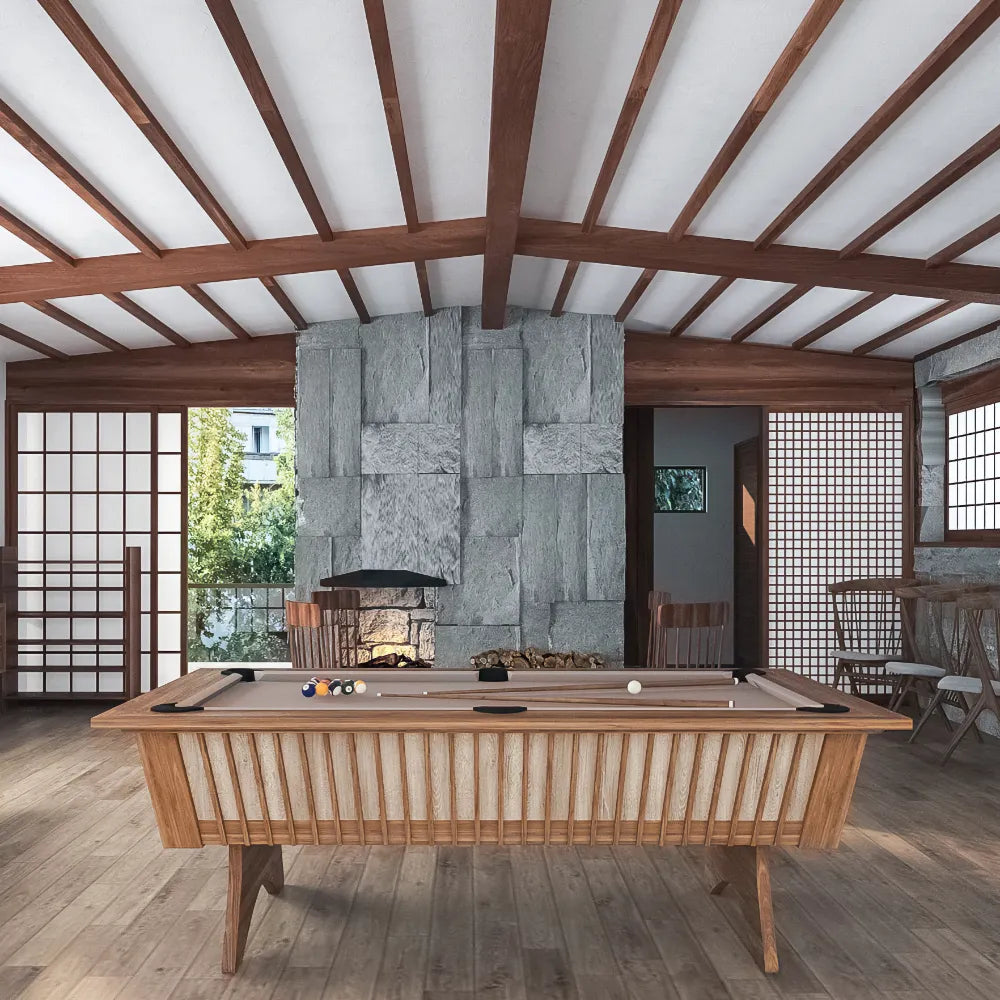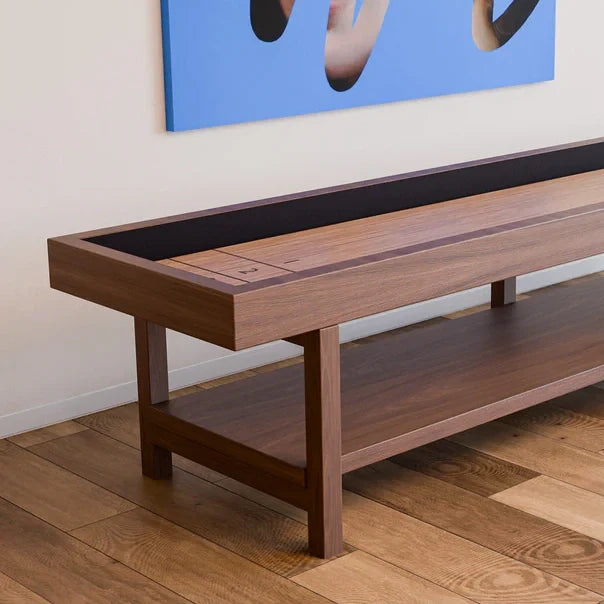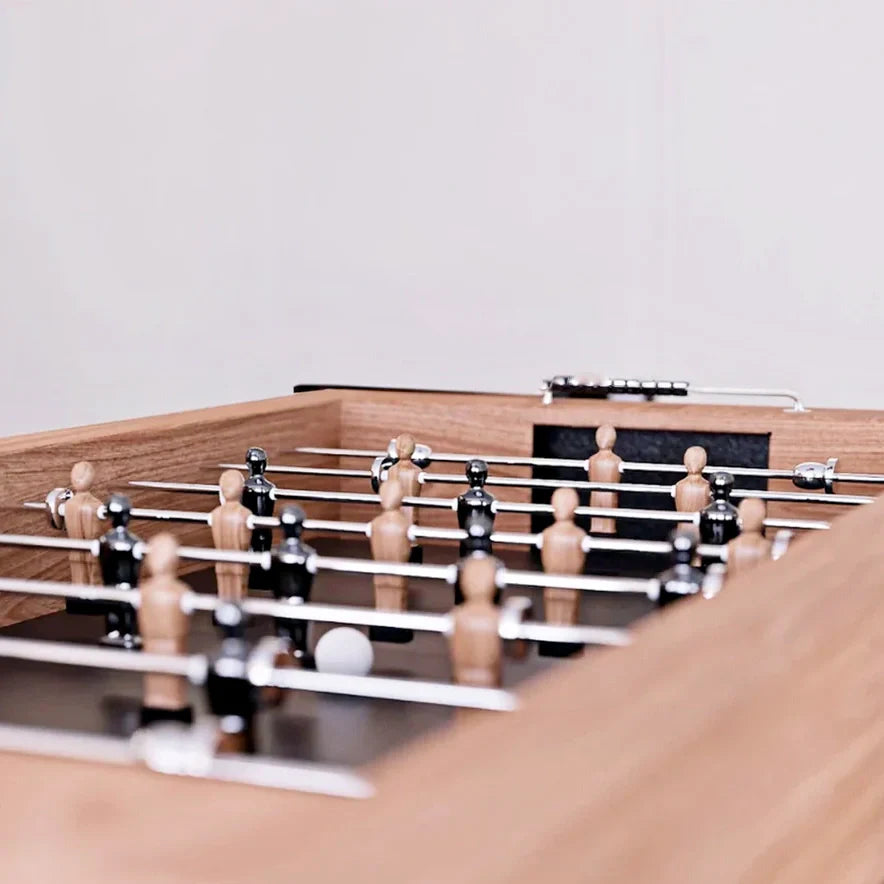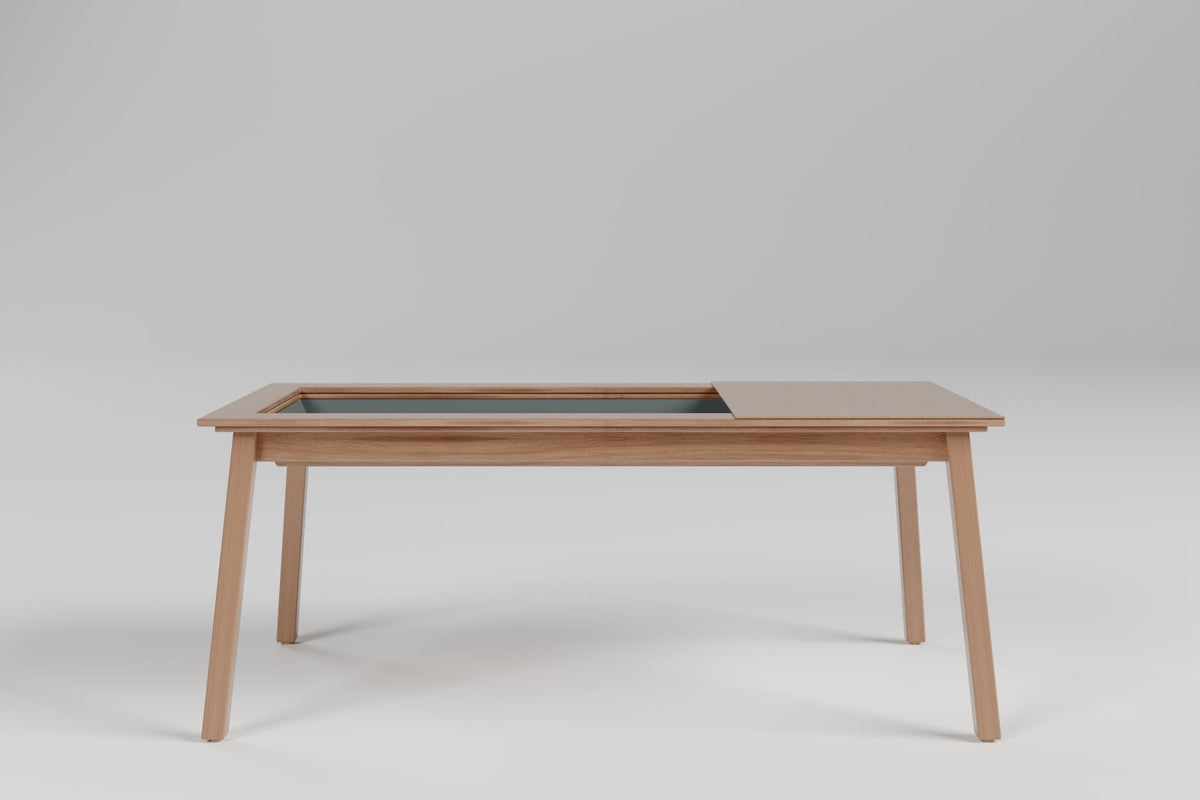Not everyone has a sprawling basement or a spare room waiting to be turned into a game lounge—but that doesn’t mean you have to give up on having a pool table or other game setup at home. If space is tight, it just means you need to be a little more creative with your choices.
Whether you're a pool enthusiast trying to make room for a table or just looking for a versatile setup for guests and family, there's something out there that fits. Here's how to make it work.
Measure Twice, Chalk Once
Before you get excited about a specific table, measure your room—then measure again. You’ll need space not just for the table itself, but also for the movement around it. Especially if you're planning to play pool, cue clearance is a big deal.
A 7-foot pool table typically needs a space that’s around 13 feet by 16 feet, assuming standard 58" cues. If your room’s a little tighter, consider shorter cues (like 52" or 48"). It’s a small adjustment that makes a big difference in playability.

Other tips to keep in mind:
- Think about ceiling height if you plan on overhead lighting.
- Watch out for swing paths—doors, chairs, and foot traffic matter.
- Consider how easily you can repurpose the space when not playing.
Pool Tables That Fit in Small Rooms
You don’t need a tournament-size table to enjoy a good game of pool. Several table types are made with smaller spaces in mind—without completely sacrificing the feel of the game.
7-Foot Pool Tables
This size is often used in bars and home game rooms. It offers a solid playing experience but doesn't dominate the room. Most players actually find this size ideal for casual play.
Folding Pool Tables
If you're really pressed for room or need something temporary, folding tables are a practical choice. They’re lighter, often made of wood or MDF, and can be stored away when not in use. They're not built for tournament-level play, but they do the job for relaxed evenings or family fun.
Convertible Pool Dining Tables
One of the most efficient space-savers out there. These tables function as dining tables by day and game tables by night. They're usually 6 or 7 feet long and have removable tops, sometimes with storage for cues underneath. Stylish and practical, especially in apartments or multipurpose rooms.
Other Game Tables That Work Well in Small Spaces
Foosball Tables
Foosball doesn't require as much room as you’d think. Many models come in more compact sizes, and some even have foldable legs or casters for easy storage. Make sure you’ve got about 5 by 3 feet of floor space around it for gameplay.
Air Hockey Tables
A fun addition if you have slightly more room. Mid-sized models are great for tight spots, though they do require outlets and enough room to move on both ends.
Multi-Game Tables
These offer a bit of everything—pool, ping pong, air hockey, and more, depending on the model. They’re usually more lightweight and geared toward casual use, but they’re a great solution for families or shared spaces.
Making the Most of a Small Game Room
- Wall-mounted storage for cues, paddles, or balls keeps your floor clear.
- Use adjustable or LED lighting to brighten the room without needing floor lamps.
- Opt for dual-purpose furniture, like benches with storage or stools that tuck under a table.
- Consider shorter cues for tight corners—especially in rooms with pillars or awkward angles.
It’s not about cramming a table into a room. It’s about designing a space where games feel natural and fun to play.

Should You Invest in a Game Table for a Small Space?
If you love the game, absolutely. A smaller room shouldn’t stop you from creating a space where people want to gather, relax, and play. Whether it’s a compact pool table, a multi-use piece, or even a table you fold and store when guests come over, the value you’ll get in return—fun, connection, and even stress relief—is well worth it.
And remember, smaller rooms often lead to smarter design. When you’re thoughtful about layout and purpose, your space works harder and feels better.







0 comments